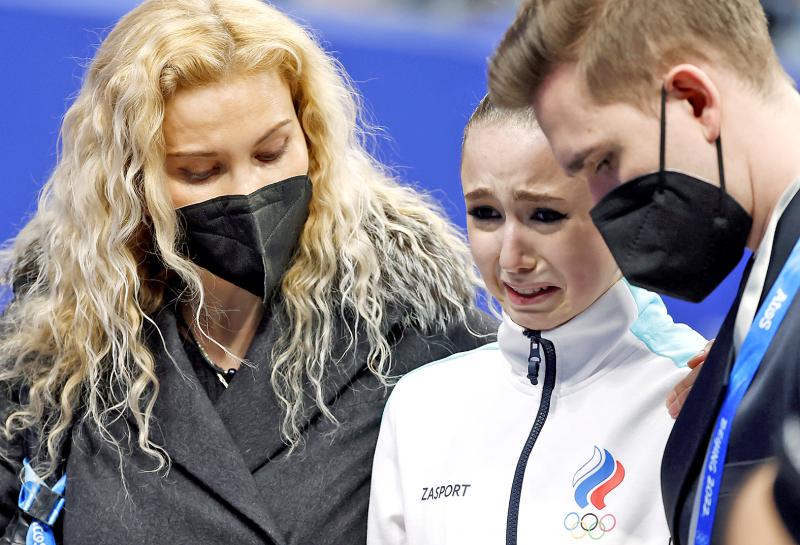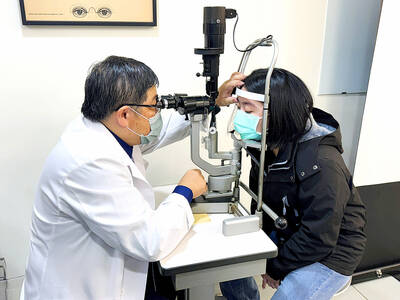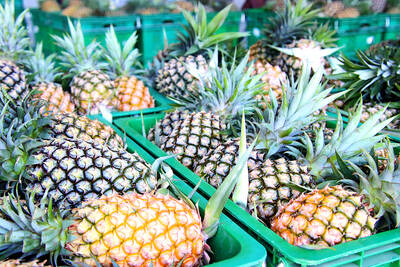The International Skating Union (ISU) voted to gradually raise the minimum competition age for senior figure skating competitions from 15 to 17 after a passionate debate at their congress on Tuesday last week.
The decision came after Russian figure skater Kamila Valieva tested positive for a banned substance while at the Beijing Winter Olympics in February, when she was 15.
Valieva’s case prompted questions over whether the minimum age for competitors in figure skating needed to be raised to protect minors.

Photo: AFP 照片:法新社
The minimum age for skaters will be 16 years old for the 2023-24 season and increase to 17 from the 2024-25 season onwards, in time for the 2026 Winter Olympics in Italy.
The proposal was passed by 100 votes to 16 with two abstentions at the congress in Phuket, Thailand, well clear of the two-thirds majority required.
“This is a very important decision,” ISU President Jan Dijkema said after cheers and applause from delegates greeted the result. “I would say a very historic decision.”

Photo: EPA-EFE 照片:歐新社
Valieva, who is now 16, had failed a doping test at the Russian national championships last December but the result was only revealed on Feb. 8, a day after she had helped the Russian Olympic Committee (ROC) win the team event at the Beijing Games.
She was cleared to compete in the women’s singles event in Beijing by the Court of Arbitration for Sport, but stumbled to fourth place with an error-laden free skate.
Russian figure skating coach Tatiana Tarasova suggested the rule change was aimed squarely at her country.
The skating body’s medical advice backed raising the age limit to 17, arguing it would benefit young skaters physically and mentally, and help extend their careers.
“I feel as administrators of the sport of skating it is your moral obligation and duty to provide these young skaters with the opportunity and time to develop... the skills they require in order to be successful at the senior level,” Dr Jane Moran from the body’s medical commission said.
“They have the right to develop themselves as people during their adolescent age... They don’t need us to be forcing them to compete.”
A medical report said the change would allow junior athletes time to reach skeletal maturity.
“The concern is that during a period of known skeletal vulnerability, the adolescent athlete may be exposed to excessive training and competition loads associated with high-level competition, which places the athlete at greater risk of injury,” the medical report said.
It also warned that some elite adolescent athletes could experience a puberty delay for an average of two years as a result of the physical demands of training and inadequate energy intake.
It noted some were at greater risk of developing eating disorders.
The athletes’ commission surveyed close to 1,000 athletes and coaches and 86 percent were in favor of lifting the age limit.
(Reuters and AFP)
國際滑冰總會(ISU)在上週二的大會上經過激烈辯論,投票決定將花式滑冰高階賽事的最低參賽年齡由十五歲逐漸提高至十七歲。
此決定是在俄國花式滑冰選手卡米拉‧瓦列娃在二月北京冬奧期間禁藥檢測呈陽性後做出的,當時她十五歲。
瓦列娃的案例引發了一些質疑,認為花式滑冰選手的最低年齡是否需要提高,以保護未成年人。
二○二三~二四賽季滑冰選手的最低參賽年齡將提高為十六歲,並自二○二四~二五賽季起提高到十七歲,以趕上二○二六年義大利冬季奧運會。
該提案在泰國普吉島的大會上以一百票對十六票、兩票棄權通過,遠超過所需的三分之二多數。
投票結果接曉時,代表們歡呼鼓掌,國際滑冰總會主席揚‧迪克馬隨後說道:「這是一個非常重要的決定」,「我會說這是非常有歷史意義的決定」。
現年十六歲的瓦列娃未通過去年十二月俄羅斯全國錦標賽的體育禁藥檢測,但此檢測結果在二月八日才公佈,即她助俄羅斯奧委會(ROC)在北京冬奧團體賽中奪金之次日。
國際體育仲裁法庭准許她參加北京冬奧女子個人組比賽,但她因長曲項目中的失誤而跌至第四名。
俄國花式滑冰教練塔蒂安娜‧塔拉索娃表示,此規則的改變是針對俄國而來。
國際滑冰總會的醫療建議支持將參賽年齡提高到十七歲以上,認為這有益年輕滑冰者的身心,並對延長其職業生涯有所幫助。
「我覺得作為滑冰運動的管理者,你有道德義務和責任給這些年輕滑冰者機會和時間來發展……在高階賽事取得成功所需的技能」,國際滑冰總會醫療委員珍‧莫蘭博士說。
「他們有權在青春期發展自我……不需要被我們強迫去競爭」。
一份醫學報告稱,此一改變會讓青少年運動員有足夠時間達到骨骼成熟。
該醫學報告說:「令人擔憂的是,在這個骨骼脆弱的時期,青少年運動員可能會因準備高階比賽而承受過度的訓練及比賽負荷,面臨更大的受傷風險」。
它還警告說,由於對身體的操練,以及能量攝取的不足,一些優秀青少年運動員的青春期可能會延遲約兩年。
它指出,有些人有更大的風險罹患飲食失調。
國際滑冰總會調查了近一千名選手及教練,百分之八十六的人贊成提高參賽年齡。
(台北時報林俐凱編譯)

A: Recently, I’ve been seeing mosquitoes flying around in front of my eyes. The doctor said it’s the “flying-mosquito disease.” B: Flying mosquitoes? What a strange name. A: They’re actually called “floaters” in English, meaning floating debris. When fibrous substances in the vitreous body inside the eyeballs increase, floaters can appear in the visual field. B: Oh my goodness. Can you get rid of them? A: According to ophthalmologist Horng Chi-ting’s research, taking the enzymes of certain fruits is likely to help reduce floaters. A: 我最近一直覺得眼前有蚊子飛來飛去,結果醫生說是「飛蚊症」。 B: 飛蚊症?好奇怪的病名。 A: 英文名稱叫「floaters」, 也就是漂浮物的意思。 因為眼球的玻璃體中纖維化物質增多,導致視野出現漂浮物。 B: 天啊!要怎麼把蚊子趕走? A:

In Taiwan, people can use a platform to rent a power washer for a weekend or share unused garage space for someone’s storage needs. These are examples of the sharing economy, a consumption model that has gained widespread adoption worldwide. This approach allows people to rent or share assets like cars, homes or even services, typically through online platforms. This innovative model poses a simple yet powerful question: why purchase infrequently used items when sharing is more practical? By making useful but idle resources accessible, the sharing economy turns them into sustainable opportunities. Internationally, platforms like Airbnb and Uber have popularized

Bilingual Story is a fictionalized account. 雙語故事部分內容純屬虛構。 I stand by the Miluo River as dusk falls. The court betrayal is too much. I served Chu with loyalty. I forged alliances and fought corruption. But the whispers of jealous courtiers, the murmurs of treason, spoke louder. The king cast me out. The water looks calm. It promises peace. I step in. The river is cold against my legs. I hear shouts behind me — fishermen calling my name. I keep walking. The calls grow louder, but I do not turn around. The water rises to my chest. It pulls at me. I

A: What types of fruit enzymes should we take to help reduce eye floaters? B: According to a study published in the “Applied Sciences” journal by Taiwanese ophthalmologist Horng Chi-ting, pineapple, papaya and fig supplements can improve symptoms. A: Pineapples are in season now, so you should munch on more of those to get rid of floaters. B: Not quite. Enzymes can be damaged by our stomach acid if we eat the fruit directly. The doctor says taking fruit enzyme capsules is better for absorption. A: Most importantly, we should reduce our use of personal electronics to prevent floaters from